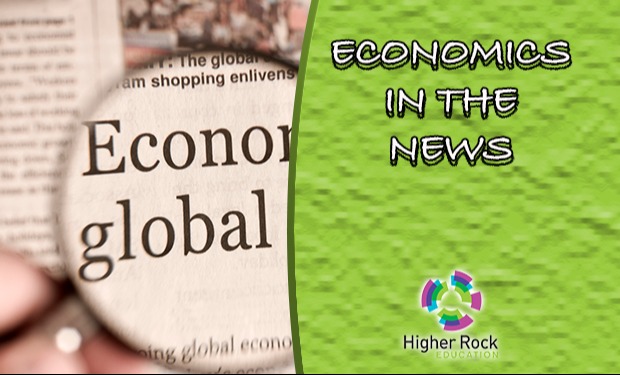
Economics impacts our lives every day. Below are some of the top storylines from this past week related to economics.
o Economists have been warning for months of increasing prices from President Donald Trump’s tariff policies. However, inflation has remain relatively muted at this point, causing some to question whether economists were wrong. Time and steps taken by businesses have helped alleviate some of the impact in the short term.
Forecasters say that the tariffs haven’t shown up in a significant enough way in broad measures just yet, the impact will likely be much more noticeable this summer. Businesses have been stocking up on products before the tariffs were imposed, driving down the number of imports of foreign goods in recent months. In Trump’s first term, washing machines were directly impacted by his 2018 tariffs, but it took roughly five months before consumers felt the effect. [The New York Times]
o Warner Bros. Discovery announced that it would split into two companies, becoming the latest entertainment conglomerate to separate its cable networks from its streaming services. Warner Bros. Discovery was created three years ago at a time when media companies thought they needed to get bigger to compete in the streaming space with the likes of Netflix.
The split is expected to be completed by the middle of next year. The move to separate its cable division from its streaming platforms follows in the footsteps of Comcast, the parent company of NBC and Universal Studios. Comcast announced last year it would separate its traditional TV business into a new company called Versant. [The New York Times]
o The temperature outside is heating up and the cost to cool residences continues to rise. Electricity prices across the country have increased 4.5 percent over the last year, according to the Department of Labor. That exceeds the 2.2 percent price increase of groceries.
Higher natural gas prices are partly to blame. Utility companies are investing billions to stabilize an aging electric grid and are passing those costs to customers. Another contributing factor are the data centers that require ample power in order to operate. Forecasts from the National Assistance Directors Association and the Center for Energy Poverty and Climate projected that the average household power bill will reach $784 during the period from June to September. [The Wall Street Journal]
o For the first time since at least the 1970s, the United States could lose more immigrants than it gains. That poses significant implications for the United States economy. In addition to his tariff policies, Trump’s immigration policies could worsen inflation. It could create labor shortages the country hasn’t experienced since the COVID-19 pandemic. It could also hurt fiscal policy with fewer immigrants paying taxes and supporting programs such as Social Security.
The reversal in immigration comes from President Donald Trump’s policies on immigration. First, the near-shutdown of the southern border, along with threats to international students and the loss of legal status among new arrivals. In addition, an increase in deportations has also had a major role. The foreign-born workforce has shrunk by one million people since March, according to the Labor Department. The drop-off has disproportionately impacted sectors such as agriculture, construction and hospitality industries. [The Washington Post]
o Many of the world’s largest companies have made commitments and pledges to make eco-friendly choices to fight against climate change. However, most of those companies are abandoning or weakening their pledges. There could be dire consequences in the future for a planet that’s rapidly heating.
Oil companies that promised investment in renewable energy sources are instead ramping up spending on oil and gas. Airlines had targets to spend $1 billion over a decade to become carbon neutral but have instead delayed its target to 2050. Retail companies blame lack of effective low-carbon technologies for missing their original targets. [Bloomberg]